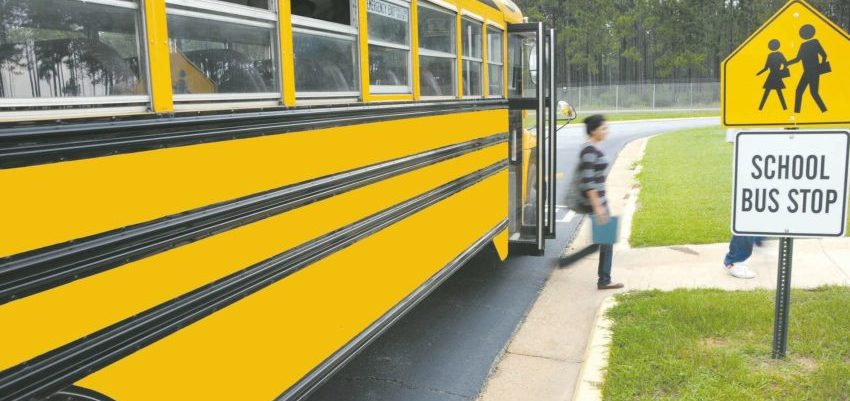
March 28, 2018
By Abby Streu and Ola Lisowski
Across Wisconsin on April 3, 66 Wisconsin school districts will hold referenda asking local voters to raise property taxes. Voters will have to decide if they want to increase taxes by up to $667 million outside of regular revenue limits.
In the past, school districts could hold referenda during any election, and could repeatedly put the same project up for a vote in consecutive elections. Now, referenda can only be held on regularly scheduled general and primary elections.
Data obtained from the Wheeler Report shows the extent of the financial burden that could be caused by these referenda if passed. The majority of the referenda would issue debt to taxpayers totaling $535.9 million. About 40 percent of the referenda up for votes would raise taxes on a one-time basis, totaling $126.7 million. Six others would raise taxes on an ongoing basis, adding up to $4.75 million per year.
School district spending projects would increase property taxes for the construction of new schools, gymnasiums, performance arts centers, weightlifting facilities, and other facilities upgrades. Others would raise money for general operations, education programming, and salary increases.
Some projects would raise funds for basic safety measures, including one at Montello School District that would issue $3.75 million in debt to remove asbestos, replace parts of the roof and air conditioning systems, and bring the fire alarm system up to code.
Area families will need to choose whether or not to increase taxes to fuel spending for local school districts – but the increased tax base will also affect the rest of the state. Issuing additional financial strains in one area of Wisconsin raises the overall tax levy statewide.
Wisconsin lawmakers have worked to reform the referendum process to alleviate the burden on taxpayers. That goal has the support of Gov. Scott Walker, who has committed to lowering the average statewide property tax levy.
In the past, school districts could hold referenda during any election, and could repeatedly put the same project up for a vote in consecutive elections.
Now, referenda can only be held on regularly scheduled general and primary elections. The 2017-2019 Wisconsin State Budget further reformed referenda, limiting votes to regular general and primary elections to ensure more voters would have a say in local spending increases.
Thirty-five referenda totaling $535.9 million would issue debt to taxpayers. Chippewa Falls School District is seeking $65 million – the biggest potential tax increase out of any one referenda up for a vote Tuesday. That money would build a new elementary school, update the middle school and add a new laboratory onto the high school.
DC Everest School District is seeking nearly $60 million for a district-wide school building and improvement program. In Plymouth, voters will consider $32 million in debt for a wide range of facilities and security upgrades, including a gymnasium, cafeteria, and academic additions, remodeling, roof replacement, and HVAC upgrades.
Beloit Turner is asking voters to approve $27 million in debt to construct a new elementary school and make additions and renovations to FJ Turner High School.
Twenty-five school districts, or 38 percent of the referenda up for consideration Tuesday, seek to exceed revenue limits on a one-time basis totaling $126.7 million.
The largest amount asked for is $29,250,000 by Howard-Suamico School District to reduce class sizes and increase employee compensation. The school district would raise taxes over revenue limits for five years, from the 2018-19 school year to 2022-23, by $5.85 million every year.
The La Crosse School District is asking voters to raise taxes by almost $21 million over five years. That additional money would go toward maintaining academic programming, facilities, and upgrading technology.
Last April, 65 referenda were put to a vote across the state. In the end, 40 passed, costing Wisconsin taxpayers nearly $700 million.
Six referenda will ask voters to raise taxes on a recurring basis. The lowest amount being sought on a recurring basis is $25,000 per year for Alma School District.
The highest is $3,000,000 per year in Darien-Delavan School District to maintain education programming. The school district is asking voters to approve two separate referenda on the same ballot. The other ballot question seeks $1.5 million in one-time spending for a new football and soccer turf field, improvements to the stadium, and new academic and vocational programming at the high school.
Last April, 65 referenda were put to a vote across the state. In the end, 40 passed, costing Wisconsin taxpayers nearly $700 million. The MacIver Institute compiled the data here.
Two-hundred-eleven referenda were brought to the ballot box between October 2013 and November 2015, according to Wisconsin’s Department of Public Instruction. Voters approved 142 of them. In April 2017, the Journal Sentinel reported that school districts in Wisconsin have passed $12 billion-worth of referenda since 1990. More than half of these referenda have occurred in the last decade.
Stay tuned for updates on referenda results on Twitter at @newsmaciver and @maciverwisc.
Referendum data was provided by The Wheeler Report.